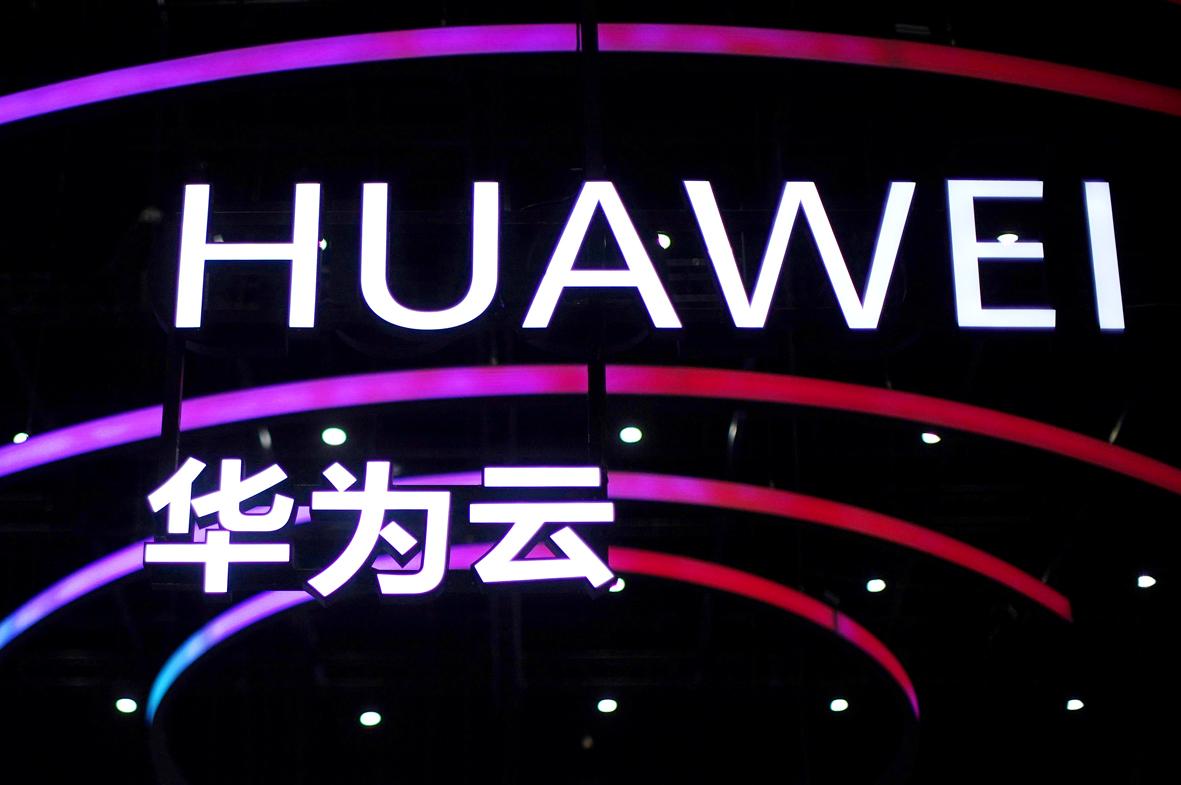Huawei Technologies Co (華為), the telecom giant at the center of US-China tensions, yesterday said that it has “sufficient” inventory for its communications equipment business while it seeks out supplies of smartphone chips that have been cut off by a ban by US President Donald Trump’s administration.
The company has enough supplies to keep its enterprise and carrier units afloat, and it is developing new consumer devices to offset the hit to its smartphone business, Huawei chairman Guo Ping (郭平) told reporters in Shanghai.
It is still evaluating the impact of the US blacklist, which has greatly limited US suppliers’ businesses, Guo said, adding that Huawei is still willing to buy from those firms.

Photo: Reuters
A White House ban on companies providing US technology to Huawei came into effect last week, cutting off the foreign-made semiconductors, software and other materials that are key to powering its mobile phones and 5G base stations.
While suppliers including Qualcomm Inc have applied for licenses to continue shipping to the Chinese company, it is unclear whether the US Department of Commerce would issue them.
“The US ban brings tremendous trouble in operation and production,” Guo said.
Huawei would provide full support to its supply chain, including in areas like talent, technology and standards, to help navigate the current restrictions, he said.
Huawei is also under siege elsewhere. Japan and Australia have joined the US-led boycott, while the UK is to prohibit its telecom operators from buying the company’s equipment starting next year.
Huawei chief financial officer Meng Wanzhou (孟晚舟) remains under house arrest in Canada and is fighting a US extradition request on alleged trade-sanctions breaches.
Huawei’s first-half revenue grew 13 percent to 454 billion yuan (US$67 billion), the company said in July.
Profit for the six months to June jumped nearly 20 percent to about 41.8 billion yuan, Bloomberg calculations show.
Its enterprise business — including cloud, routers and other IT services — accounted for less than 10 percent of revenue during the period, while its carriers unit made up slightly over one-third.
Huawei consumer group chief Richard Yu (余承東) said at an event this month that curbs on chip supplies have affected smartphone shipments, which were 105 million units in the first half of this year after reaching 240 million last year.
Guo’s comments suggest that the firm might be holding out hope that the situation could improve after US elections in November.
“As Alexandre Dumas said, all human wisdom is summed up in these two words: wait and hope,” he said, quoting from The Count of Monte Cristo, a 19th-century novel about the eponymous count who gets revenge against those who conspired against him.

Three experts in the high technology industry have said that US President Donald Trump’s pledge to impose higher tariffs on Taiwanese semiconductors is part of an effort to force Taiwan Semiconductor Manufacturing Co (TSMC, 台積電) to the negotiating table. In a speech to Republicans on Jan. 27, Trump said he intends to impose tariffs on Taiwan to bring chip production to the US. “The incentive is going to be they’re not going to want to pay a 25, 50 or even a 100 percent tax,” he said. Darson Chiu (邱達生), an economics professor at Taichung-based Tunghai University and director-general of

Hon Hai Precision Industry Co (鴻海精密) is reportedly making another pass at Nissan Motor Co, as the Japanese automaker's tie-up with Honda Motor Co falls apart. Nissan shares rose as much as 6 percent after Taiwan’s Central News Agency reported that Hon Hai chairman Young Liu (劉揚偉) instructed former Nissan executive Jun Seki to connect with French carmaker Renault SA, which holds about 36 percent of Nissan’s stock. Hon Hai, the Taiwanese iPhone-maker also known as Foxconn Technology Group (富士康科技集團), was exploring an investment or buyout of Nissan last year, but backed off in December after the Japanese carmaker penned a deal

‘LEGACY CHIPS’: Chinese companies have dramatically increased mature chip production capacity, but the West’s drive for secure supply chains offers a lifeline for Taiwan When Powerchip Technology Corp (力晶科技) entered a deal with the eastern Chinese city of Hefei in 2015 to set up a new chip foundry, it hoped the move would help provide better access to the promising Chinese market. However, nine years later, that Chinese foundry, Nexchip Semiconductor Corp (合晶集成), has become one of its biggest rivals in the legacy chip space, leveraging steep discounts after Beijing’s localization call forced Powerchip to give up the once-lucrative business making integrated circuits for Chinese flat panels. Nexchip is among Chinese foundries quickly winning market share in the crucial US$56.3 billion industry of so-called legacy

WASHINGTON POLICY: Tariffs of 10 percent or more and other new costs are tipped to hit shipments of small parcels, cutting export growth by 1.3 percentage points The decision by US President Donald Trump to ban Chinese companies from using a US tariff loophole would hit tens of billions of dollars of trade and reduce China’s economic growth this year, according to new estimates by economists at Nomura Holdings Inc. According to Nomura’s estimates, last year companies such as Shein (希音) and PDD Holdings Inc’s (拼多多控股) Temu shipped US$46 billion of small parcels to the US to take advantage of the rule that allows items with a declared value under US$800 to enter the US tariff-free. Tariffs of 10 percent or more and other new costs would slash such